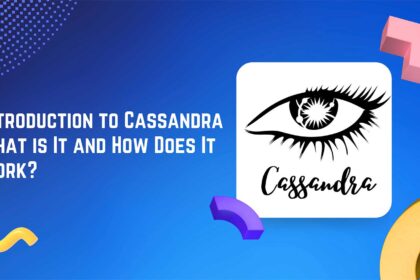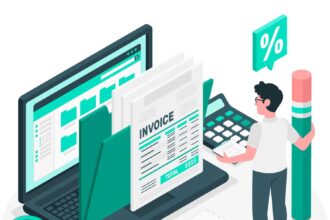A lean business is one which continually improves its processes to eliminate waste and maximize value. By doing so, organizations can achieve their overarching objective of delivering maximum value to the customer or end user.
To implement lean methodologies, businesses use a range of tools techniques, such as Six Sigma. As the concept of lean has evolved, it has become widely used amongst various sectors. Just take a look at this blog post to see how lean and Six Sigma are being implemented in a range of industries. Organizations can embrace lean principles and methodologies by building bespoke platforms or customizing purpose-built software. To find the right option for your business, take a look at these top five platforms for lean portfolio management:
1. Zoho Projects
Full of features and available at a super low cost, Zoho Projects is a go-to choice for small to mid-size businesses that want to incorporate lean portfolio management into their operations. In fact, Zoho Projects offers tools designed to facilitate various elements of the Agile methodology.
Its project planning features enable you to develop a project from start to finish within the platform itself, so you don’t need any other software to manage in-house lean projects. If you’re already using project management tools, rest assured that Zoho Projects offers plenty of integrations to keep things streamlined.
2. LiquidPlanner
Adaptive and customizable, LiquidPlanner gives you the flexibility to respond to intrinsic and extrinsic changes as they happen. Cross product visibility allows you to manage risks, share information and eliminate waste, which is one of the reasons why it’s so well-suited to lean teams.
What sets LiquidPlanner apart from other project management platforms is its automated scheduling and forecasting features, as well as its automated resource levelling. By making the most of these, you can eliminate waste in your project management processes and in projects themselves. While any organization can use LiquidPlanner, it’s particularly effective for large companies or big projects with numerous iterations.
3. Teamwork
As the name implies, Teamwork is a project management software with an emphasis on collaboration. Share documents, chat with instant messages, manage your helpdesk and cultivate an in-built CRM system.
One of the major advantages of Teamwork is its simplicity. Whether you’re new to Agile and lean methodologies or you’re already familiar with scrums, kaizen events and Kanban boards, you’ll find it easy to navigate the visual dashboards, update timelines and set goals.
With advanced features available for major projects, Teamwork evolves with your organization and meets your needs as they develop. Giving you the resources you need, when you need them, it’s not surprising that it’s one of the most popular project management platforms out there.
4. Jira
Initially created to facilitate software development, Jira has evolved over time and can now be used to track any type of product or project. Used for Agile and traditional project management, it can be incorporated into your Lean philosophy to help you achieve your goals and increase profitability.
Although Jira offers a wide variety of features, it can take some time to get used to the layout and settings. For this reason, it might be best suited to teams who are familiar with Agile and Lean concepts. Despite this, Jira is a great option if you want to integrate your project management software with other apps and use roadmaps to plan, monitor and execute tasks. Workflows are highly customizable, and you can set custom forms, reports, timelines, fields and tables too.
5. Wrike
You can use Wrike with five or more users but its capability to serve unlimited users makes it the ideal option for large or growing teams. Find out which Wrike pricing model works best for your needs. Although it offers a simple and easy-to-use interface, it doesn’t scrimp on features. Task lists, subtasks, file sharing, shared workflows, instant chat and schedules are just some of features you’ll find on Wrike. Additionally, you can switch between Gantt charts, Kanban boards and traditional views to manage projects in the way that’s most effective for you.
There are templates for common processes, as well as team-specific solutions, such as professional services or marketing. Wrike already offers more than 400 integrations, so there’s a good chance the platform will work seamlessly with the software and tools you currently use.
What to Look for in Project Management Software
If you want to incorporate lean methodologies into your business or you simply want to enhance your existing Agile workflows, choosing the right project management software is essential. While there are plenty on the market, different features and views mean there is a considerable difference between them. When you’re searching for the best project management software for your team or organization, there are certain things you’ll want to look out for, including:
- Customizable workflows and fields
- Sector-specific features
- Collaboration tools
- Compatibility with Agile and Lean principles
- Integration options
In addition to this, there are other key factors which will play a role in your decision-making. Choosing a cloud-based platform ensures easy access, for example, which is vital for remote teams. Similarly, selecting software that can be scaled with your business is vital for long-term success.
Get the Most Out of Lean Portfolio Management
If you’re new to lean methodologies or you’ve never used project management software before, it can take a little time to become familiar with the terminology and features. However, it’s well worth putting the effort in and finding out whether project management software can elevate your business.
As a centralized platform, project management software gives you a core location to generate ideas, create workflows, analyze progress, identify bottlenecks and implement solutions. What’s more – it enables you to do this with maximum efficiency and minimum waste.
For Agile companies and organizations, project management and lean portfolio management is at the heart of your operations. By finding the right software, you can ensure that your employees, teams and company have access to innovative resources, collaborative functions and streamlined workflows. Once you’re set up, you’ll see just how effective and valuable lean portfolio management can be for your business.











